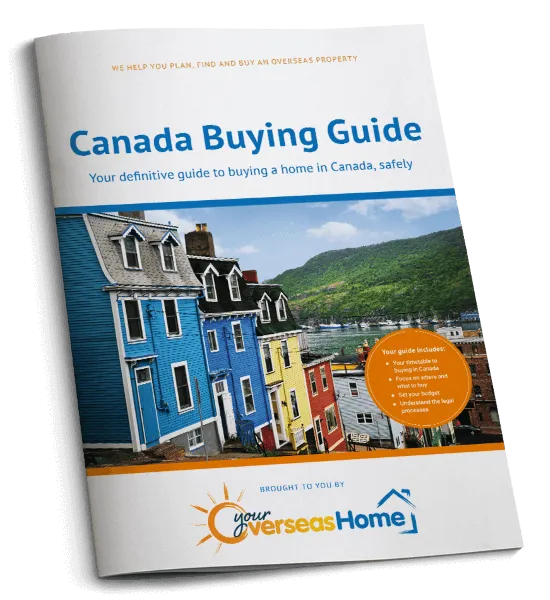Maintaining your finances after you move to Canada
The financial implications of an international property purchase are equally important once you’ve moved in. To help you manage your finances effectively, we’ve highlighted the main issues you will need to address.
Living costs
When beginning a new life overseas it’s important to have an idea of how much items/services you need will cost. Most day-to-day living costs in Canada are a little cheaper, according to the thousands of ratings on Numbeo.com – the world’s largest database of user contributed data about cities and countries worldwide.
Click here to view our full Cost of Living survey. This compares the price of groceries, utilities, transport, insurance and socialising in Canada with the UK.
Tax planning
To ensure you’re aware of your tax liabilities, consult a qualified tax lawyer and independent financial adviser post-purchase.
Paying Canadian income tax depends upon a number of factors, including residency. Others include owning a home in the country, having relatives who live there and Canadian bank accounts. Non-residents – in the country for less than 183 days each year – only pay income tax on money that they have earned in Canada. If you spend more than 183 days a year in the country you are considered to be a resident of Canada. You can then be taxed on money that you earn anywhere in the world.
The majority of people earning in Canada don’t need to file a physical tax return. This is because there is a ‘PAYE’ system in place for most workers. Calculating tax in Canada will require careful consideration as there are two systems in place: provincial taxation and federal taxation. If you do need to submit a tax return the two types can be calculated on the one form, unless you are living in Quebec.
Claiming your pension in Canada
Expats in Canada are eligible to access the state pension scheme, known as Old Age Security, once they have lived there for at least 10 years after the age of 18. It’s paid at 65 and is means tested, so outline all sources of income in your application. A further scheme, the Canada Pension Plan – or Quebec Pension Plan if you are living in Quebec – is based on payments made by you and your employer while you are working in Canada.
If you retire to Canada, you will not be eligible to receive any pension from the country itself. Therefore, you may need to prove you have enough resources to support yourself while you are there.

The most effective way to transfer your UK pension is to set up a Regular Payments Plan with Smart Currency Exchange
You can draw your UK state pension in Canada but your annual increases will be frozen either at the rate it reaches when you move, if you are already drawing it, or at the rate it is when you first qualify – if by that point you are living in Canada.
Knowing how much you’ll receive each month from a fixed income will allow you to effectively plan your monthly expenditure. The most efficient and secure way to transfer your UK pension overseas is to set up a Regular Payments Plan with Smart Currency Exchange. This automated exchange tool allows you to set up payments to occur as frequently as you wish – whether it’s weekly, monthly or at more irregular intervals. Having arranged your schedule, your money will be debited from your account, exchanged into the required currency and sent abroad.
As well as offering convenience, the service can provide you with some security too. You can fix the exchange rate, so you know how much money is leaving your account and arriving in another account with every payment – eradicating the risk of currency market volatility impacting your finances.
Paying into your pension
Unless you are retiring to Canada you will probably be working there, and will want to continue your pension payments. You can choose to leave your pension in the UK pension plan, with no limit to how much you pay in, although you may miss out on tax relief.
Permanent residents or citizens can move an occupational or private pension to Canad. Provided you have not started to receive payments from it already. Your pension benefits can only be transferred to a plan which is recognised by HM Revenue and Customs as a Qualifying Recognised Overseas Pension Scheme (QROPS). This is a tax neutral jurisdiction that allows you to remove your pension scheme from the UK tax net.
A financial institution must apply to have QROPS status, and therefore only a few financial institutions in Canada are currently authorised to make the transfer.
If you’re transferring funds to Canada to cover your living costs, it’s important to manage these payments effectively. Contact Smart Currency Exchange today for expert guidance around securing the best rates and save yourself money today.

The Canada Buying Guide takes you through each stage of the property buying process, with practical recommendations from our experts who have been through the process themselves. The guide will help you to:

